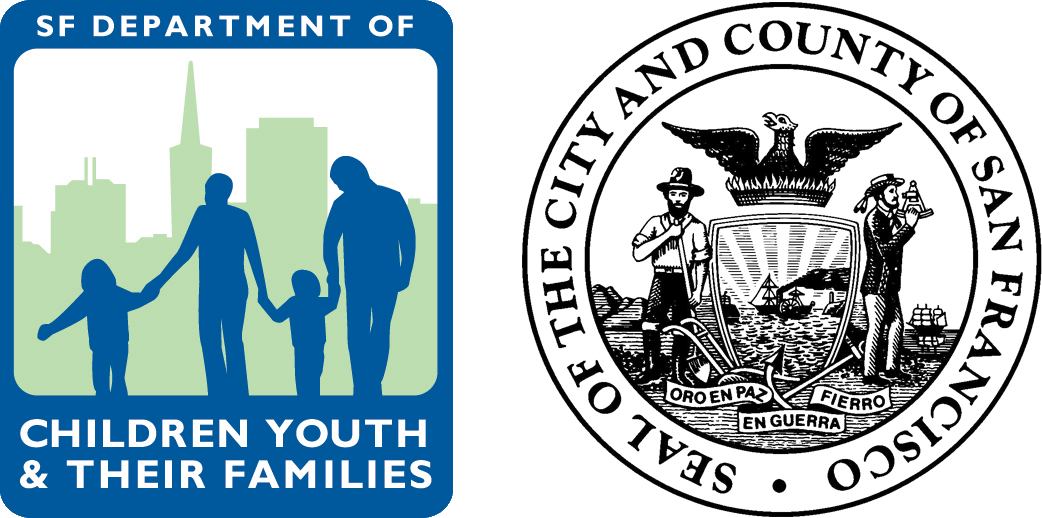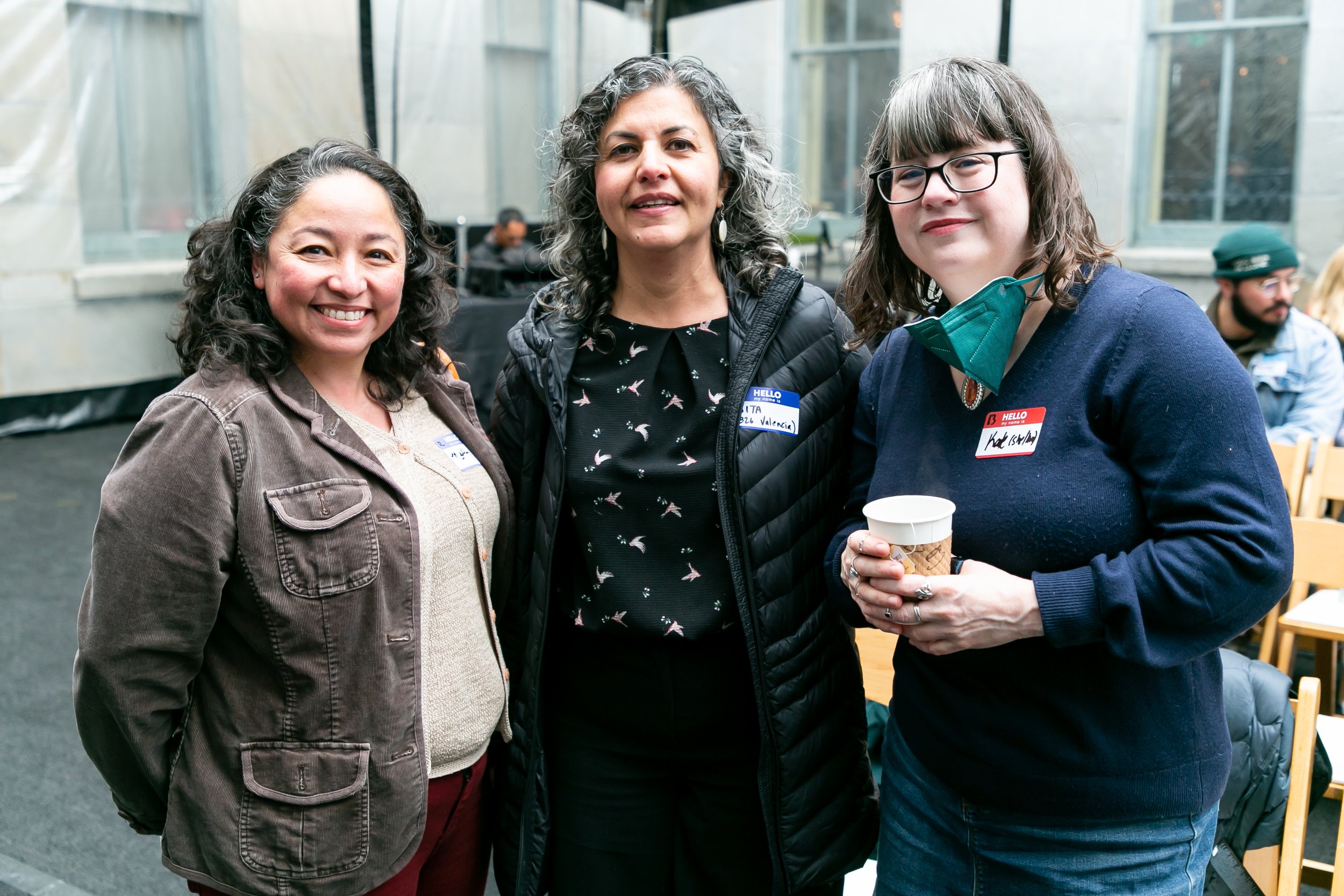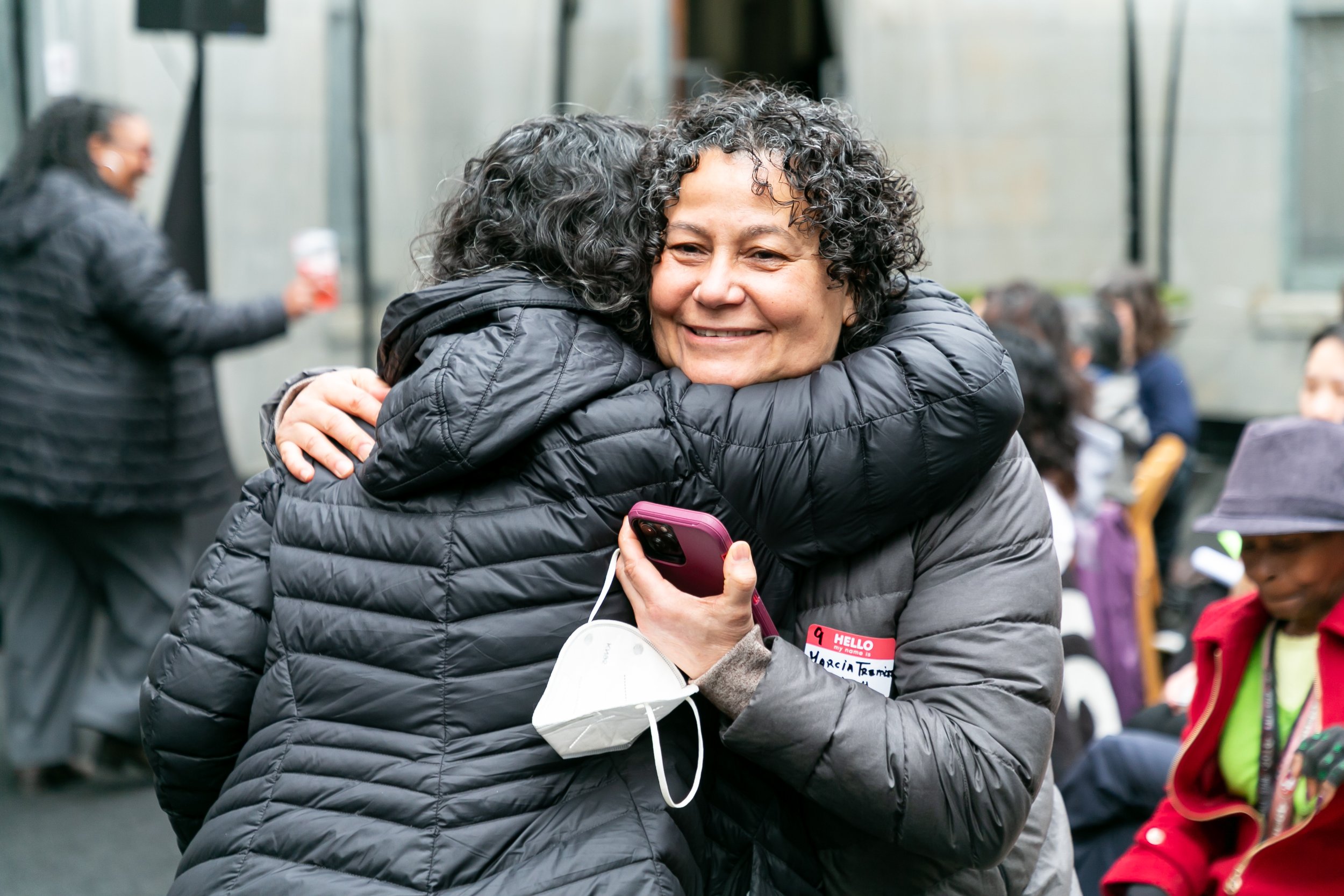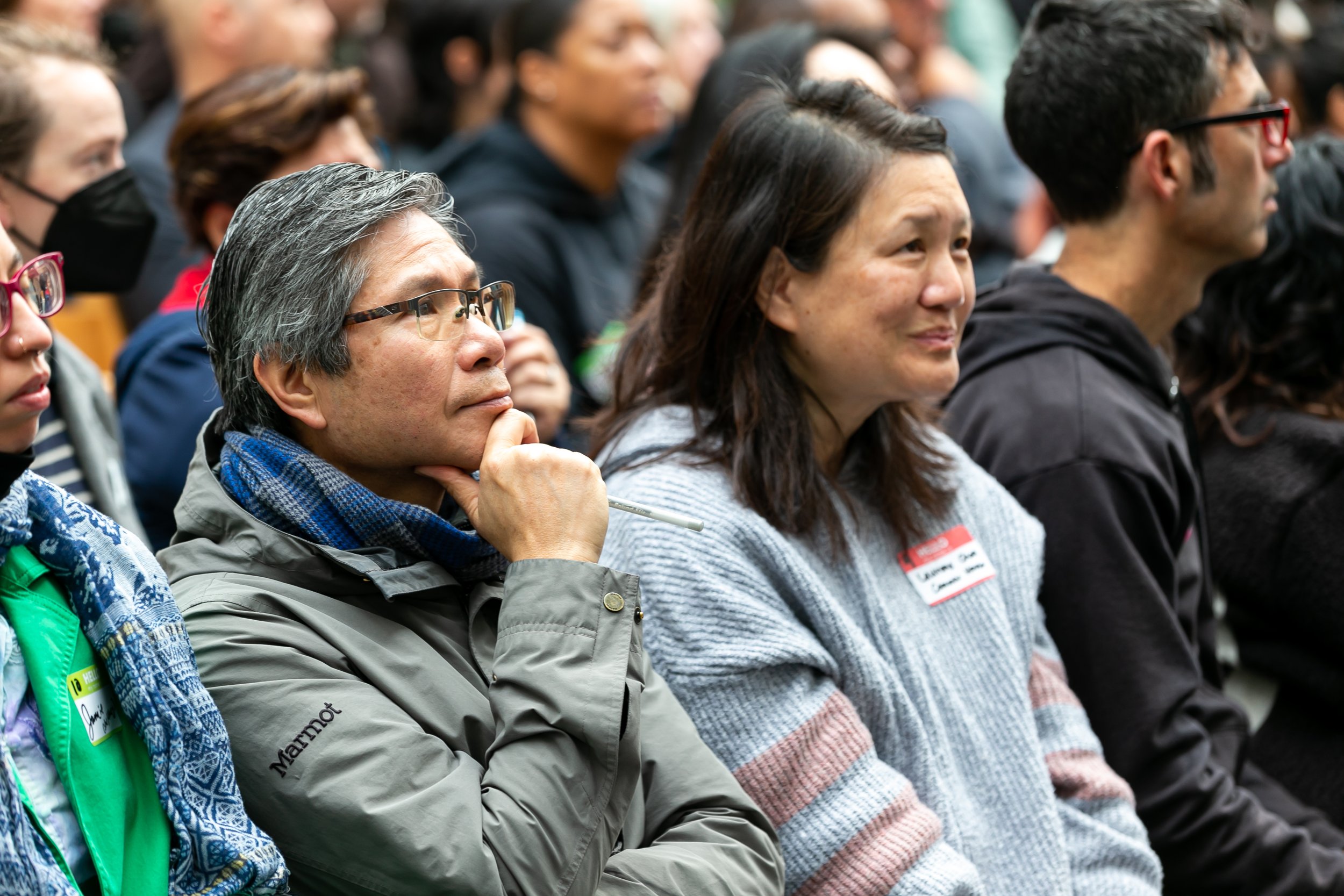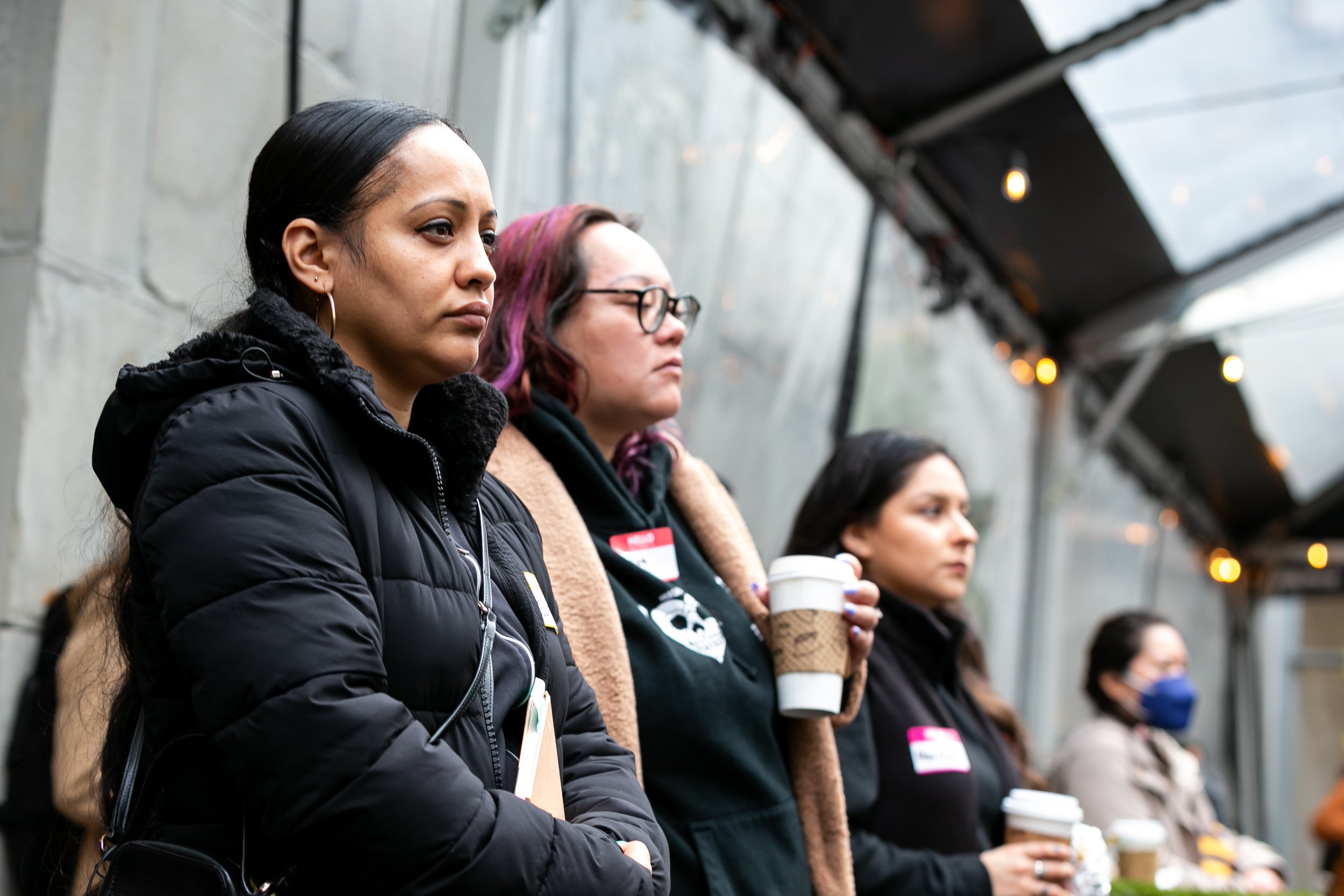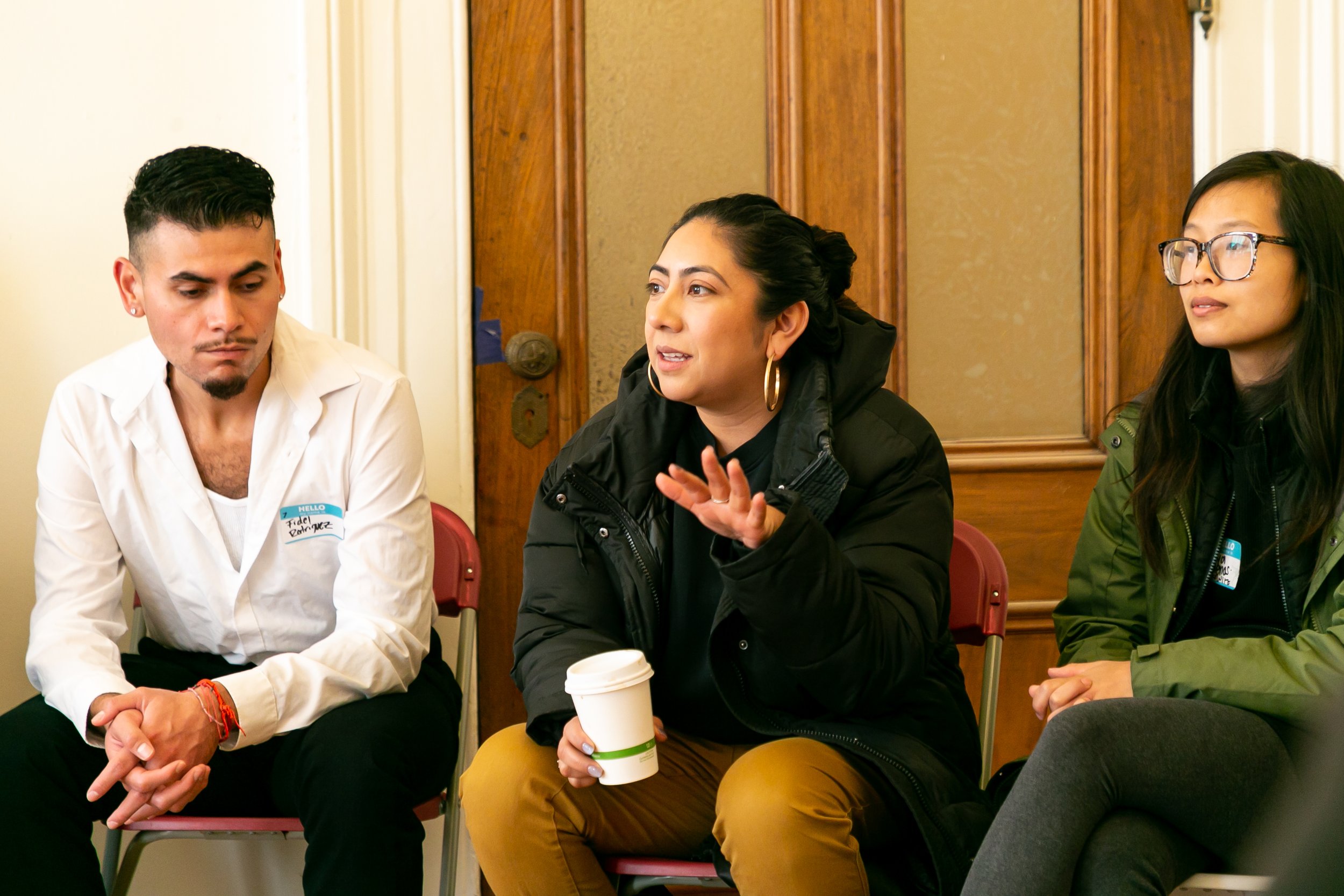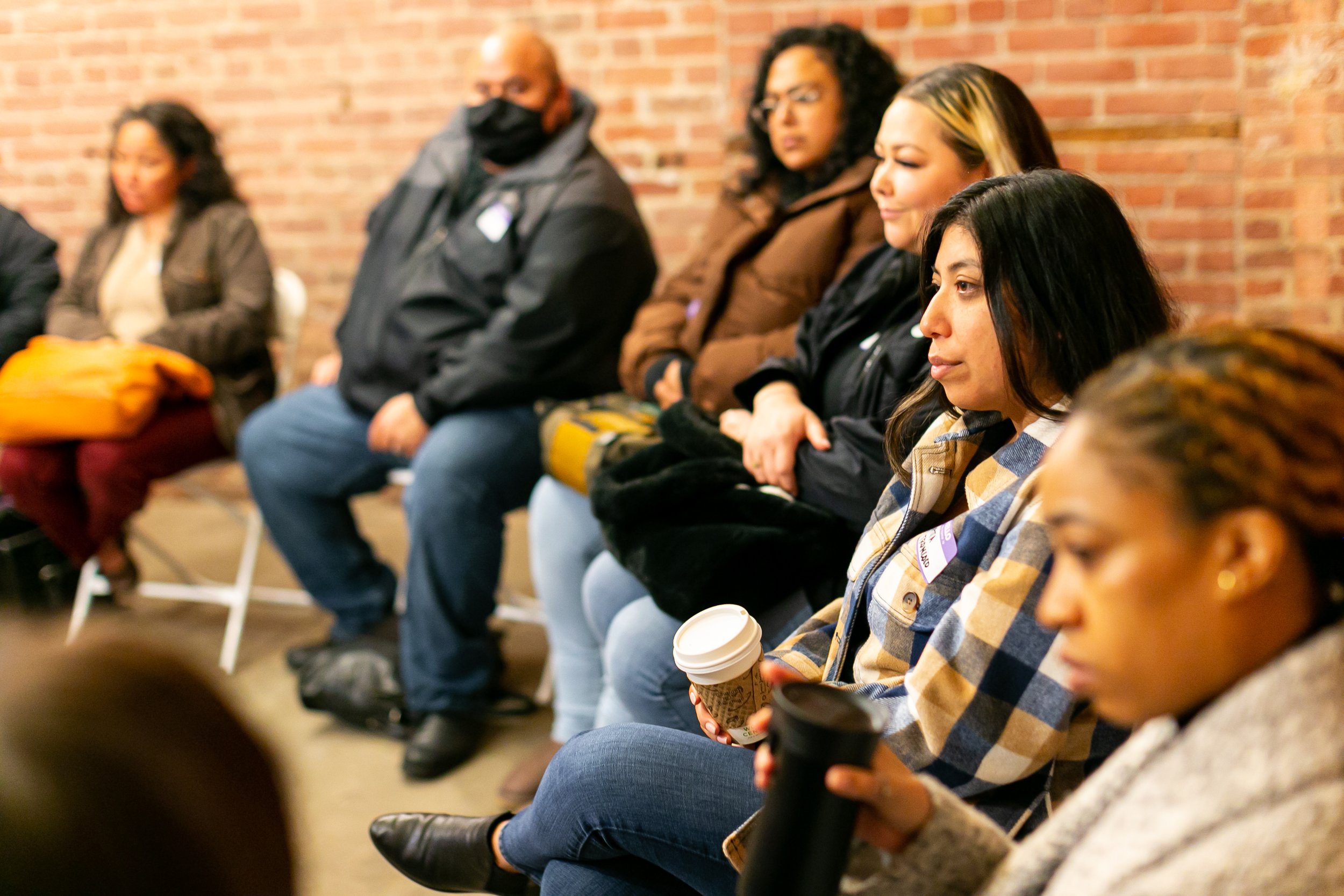2023 DCYF All Grantee Convening: Key Takeaways
Thank you for attending our All Grantee Convening (AGC) on March 20, 2023. Over 300 staff members from across 155 DCYF funded organizations gathered at the San Francisco Mint. After the DCYF planning presentation regarding our 2024-2029 funding cycle, attendees split into 16 breakout sessions to share expertise as youth development professionals to inform our current planning. Grantees were posed the same 3 questions in each breakout session: What are the gaps you are seeing in your work both with participants and families and the systems you work within? What do you think DCYF needs to do to achieve our 4 results? What are your goals, aspirations or hopes for the children, youth, TAY and families you work with for the 24-29 funding cycle?
Here is a summary of the recurring themes that arose in responses. The following themes do not reflect all the detailed, constructive, and meaningful feedback received from grantees, but rather focuses on painting a picture of CBO staff concerns and ideas that are within DCYF’s lane for upcoming planning.
Youth behavior on school campuses and in programs signals an urgent need for widespread “SEL catchup” and culturally competent mental health supports for whole families. The pandemic exacerbated feelings of isolation in families and communities that grantees identified as a root cause of upticks in conflicts and behavioral challenges among youth. Grantees shared that the gaps in the distribution of mental health services across school and program sites must be a priority in order to work towards goals of meeting youth and TAY SEL needs. Accessibility challenges observed by grantees include a lack of trained mental health specialists at sites, limited culturally responsive mental health resources, and a need for non-English language translation support. In connection with SEL, grantees described the unique social and behavioral needs of youth and TAY, further advocating for resources that account for all ages. In discussing supports needed to promote SEL growth among youth, grantees described interest in seeing stronger standardization of SEL frameworks and definitions between DCYF, SFUSD and additional City partners, as well as universal messaging that conveys to families the importance of SEL.
Youth and families are expressing a diminished sense of safety, especially related to transportation needs, that decreases willingness to engage in programs. Grantees described program participants and families feeling less safe with the increase of gun violence on school campuses and in the community. Hoping to address this concern, grantees advocated for cross-collaboration across City departments and SFUSD to align and practice violence prevention and restorative justice approaches to address safety concerns of youth at school and in public spaces.
Youth and families are displaying heightened need for support in meeting basic needs, and unmet needs disrupt continuous program engagement. Grantees shared observations and experiences with families seeking critical supports and resources to meet housing, physical and emotional health, food security, income, childcare, and transportation needs. They described how these basic needs impact the ability for youth and young adults to participate in enriching programming. In particular, grantees described the challenge of serving populations that face increased hardship with securing basic needs, such as undocumented and newcomer immigrant families. While grantees desire to meet these needs, they are limited in time, capacity, and knowledge to provide services due to contract constraints defined by DCYF and City partners. Given this challenge, grantees expressed the need for City funding and resources to be disbursed with added levels of flexibility in eligible uses, particularly to support youth and families in moments of widespread crisis. In addition, grantees proposed that although DCYF does not fund basic services such as housing, DCYF can play a role by advocating for policies and Citywide planning that will address family basic needs.
CBO staff emphasize the importance of engaging parents and guardians of youth in programs as a means of building community and family stability. Grantees noted that family engagement among participants has declined since the pandemic, which program staff and youth experienced as low turnout at major community events and program culmination activities. Grantees described how community events and family engagement are critical to retain participants and foster positive family and youth dynamics that expand beyond the scope of programs. Grantee conversations yielded ideas to increase family engagement by increasing language translation support, collaborating with programs across communities, and dedicating funding to community events.
Fatigue, high living costs, wage competition and limited agency budgets are all exacerbating staff turnover rates and disrupting service stability. Grantees face significant challenges with staff recruitment and retention, which are critical to ensuring program stability and consistent access to caring adults as well as nurturing environments for participants. These staffing burdens accumulate into staff fatigue and burnout which may contribute to staff leaving, furthering a cycle of staff turnover. Grantees advocated for sustainable staff wages and benefits, mental health and wellness staff resources, and vocational training opportunities to aid in staff retention and growth in the field of youth development.
Instability of staffing is prompting wider and more frequent needs for systematic onboarding and training of staff. Grantees described a need for technical assistance and capacity building services to aid in training new staff with skills and knowledge needed to provide high quality youth programming. In addition, grantees desire to see more opportunities for in-person, on-site, and collaborative training that can accommodate busy service provider schedules and standardize the type of training staff are receiving in the youth development field.
CBO staff seek relief from administrative burdens prompted by the need to coordinate with campus schedules and site protocols, as well as multi-agency compliance, data and reporting policies (DCYF, SFUSD, DPH, etc.). Grantees expressed frustration with the amount of staff energy invested in coordinating data around seemingly redundant systems and incompatible schedules across funders, service providers, and ultimately, youth and families (especially among grantees funded by grants from numerous City agencies). Grantees envisioned a strong communication pipeline between City agencies, schools, programs, and families that aids in a streamlined, accessible coordination of children, youth, and family programs. When proposing supports and structures that could alleviate this strain, grantees described centralized referral systems linked to shared participant registries as well as additional background DUAs and MOUs between City agencies to promote institutional data sharing without necessitating added data collection.
DCYF is called on to act as a partnership initiator, convener and information provider for grantees to build new collaborations in support of shared youth. Grantees articulated a strong desire for more centralized resources regarding services provided by peer agencies. Grantees requested that DCYF generate central directories of activities and slots available among DCYF-funded organizations. Grantees proposed one-stop-shop resource hubs planted in key service neighborhoods. Grantees expressed that if DCYF could coordinate informational gatherings for DCYF meet and share information around topic-specific services or neighborhood-specific plans, then CBO staff would appreciate opportunities to continue collaborations. As a technical assistance/capacity building activity, particularly for smaller organizations, grantees also expressed interest in mentorship opportunities for agencies to share ideas and plans for solving similar challenges.
Grantees and DCYF share a commitment to cultivating joy and wellness for the City’s children, youth and families. When closing our breakout sessions, grantees shared similar goals and aspirations for the growth and wellbeing of the City’s children, youth, TAY, and families, including but not limited to:
Stably housing our children, youth, and families
Ensuring inclusive, accessible, and quality K-12 education
Engaging youth in activism and cultivating their empowerment
Stabilizing families through crises and re-engaging adult guardians to build
Ensuring safe academic and recreational environments
Widening access to mental and physical health services
Securing sustainable employment for all youth
Collaborating to plan and deliver high-quality programs among all youth service providers
We appreciate having the opportunity to share space and dialogue with our grantees.
As mentioned, we are laser focused on achieving better outcomes for our City’s children, youth, TAY and their families. We recognize that intentionality and collaboration are crucial to our approach and being able to hear directly from our grantees is a key part of that effort. Grantees are our partners and agents of change in the community and as such DCYF benefits from being able to hear about the things they are seeing in their day to day work. Additionally, being intentional in how we address the needs and disparities in experiences that affect children, youth, TAY and their families requires having a strong sense of both what those experiences are as well as a nuanced understanding of how those needs and disparities show up for the specific folks we serve.
Some of this information was collected through our Community Needs Assessment (CNA), a process that many grantees assisted with by connecting us to the communities they serve. We also greatly benefit from the additional ways we gather those more nuanced perspectives such as through the All Grantee Convening.
We appreciate the willingness for our grantees to share the information and commit to using it to inform our work on our Services Allocation Plan (SAP) and Request for Proposals (RFP) for the 2024-2029 funding cycle.
